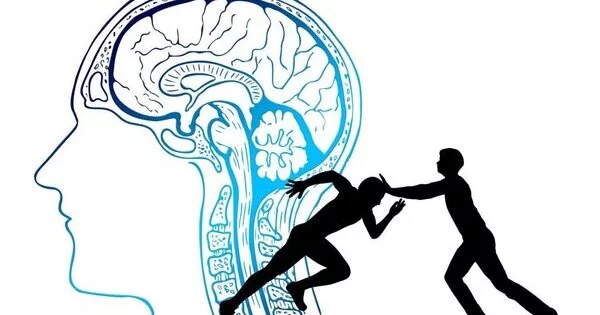Athletes are not immune to mental health challenges, and it is important to recognize the warning signs that indicate poor mental health. According to new research, ‘put down’ language is a key indicator of poor mental health in athletes. Sports psychology experts from Staffordshire University and Manchester Metropolitan University interviewed over 400 athletes from various sports, ages, and levels of experience for the study.
The findings show that athletes’ belief systems, specifically irrational beliefs, are associated with lower self-confidence and, as a result, increased competitive anxiety and depressive symptoms. The authors say that phrases that reflect self-deprecating beliefs, such as “if I lose, I’m a failure” or “if I face setbacks, it shows how stupid I am,” are warning signs.
In our recent study, self-depreciation beliefs were found to be the main predictor of low self-confidence. We can all work together to help athletes develop mindsets that will prepare them to face the challenges of sport and life.
Dr Martin Turner
“Despite the psychological benefits of physical activity, studies frequently report poor mental health in athletes, which may be exacerbated by adversities such as injury, de-selection, and performance pressure,” said Paul Mansell, Lecturer in Sport and Exercise Psychology at Staffordshire University. We looked into athletes’ beliefs, how they perceive stress, and their levels of self-confidence in order to figure out what might predict psychological well-being. We discovered that irrational beliefs are a major cause of symptoms of poor mental health in athletes.”
This is the first known study that has examined irrational beliefs, self-confidence, and the psychological wellbeing of athletes all together. Irrational beliefs are extreme, rigid, and illogical ideas that people hold. For example, a person might believe that they “must” get what they want, or that just because they have failed, that they are a “complete failure.”

“In our recent study, self-depreciation beliefs were found to be the main predictor of low self-confidence,” said Dr. Martin Turner of Manchester Metropolitan University. Simply put, when an athlete puts themselves down and says things like “If I lose, it means I’m a failure,” it is most damaging and likely to lead to confidence issues. This is likely to have an impact on performance and well-being. We can all work together to help athletes develop mindsets that will prepare them to face the challenges of sports and life. We can help athletes stay healthy amidst the high demands of competitive sport by encouraging rational and logical performance beliefs.”
The authors propose Rational Emotive Behaviour Therapy (REBT) as a useful tool for boosting self-esteem. REBT assists athletes in challenging these self-depreciation beliefs and developing more helpful and healthy beliefs. For example, rather than believing that “I am a failure if I fail,” one could counter with “failing is not ideal, but it does not mean that I am a failure.”
Paul went on to say: “The good news is that irrational beliefs can be tested and debunked. A coach, teammate, or sports psychologist can spot irrational belief phrases and assist athletes in countering them. Promoting helpful’self-talk’ or imagery can be extremely beneficial in shifting someone’s mindset from rigid and illogical to more rational, flexible, and healthy.”















